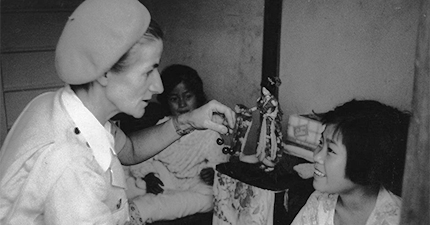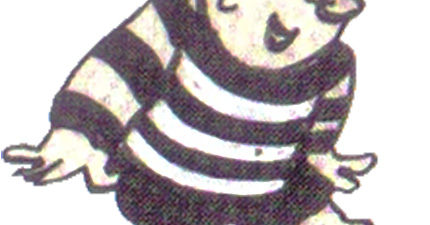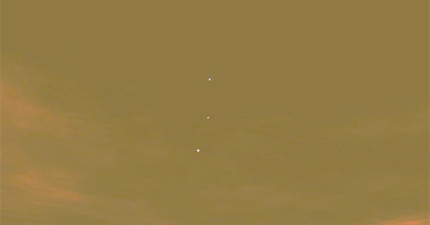I moved to the so-called United States when I was six years old. I didn’t know where I was since I had never seen a world map before at the time and I didn’t understand the history of this colonial nation until much later. It turns out, I also didn’t know quite a few things about being Chinese at the time. Here are some things that I didn’t know about:
1. I didn’t know that Chinese people ate a lot of rice since I only started eating rice post immigration and had congee for the first time as an adult
2. I didn’t know about the existence of any Chinese bakeries
3. I didn’t know what bubble tea or milk tea was
4. I didn’t know that people drank tea very much at all
5. I didn’t know what a egg tart, pineapple bread, or what egg rolls or spring rolls were
6. I never received red envelopes or seen a single lion or dragon dancer
7. I didn’t know anything about Buddhism of any kind
I had a lot to learn. You have to keep in mind that some of my ignorance had to do with me being a child. But children are observant. Kids watch the world around them. They notice things.
I really liked going to the local public library when I first immigrated. There, I found a few picture books, the kind for kids, about Chinese identity. Those books always had foods that I wasn’t aware of, these lion and dragon dancers that I’d never seen, and cultural customs that I didn’t practice.
This is the China that I knew before I immigrated to the so-called United States: we never ate rice. We ate mostly millet and sometimes wheat. There was no seafood. Cow and goat were central to the cuisine. The street food was halal. No one drank tea regularly. We would drink either hot water or vodka. The most visible religion in the neighborhood was Islam. The architecture was not small and cramped but big, spacious, and Soviet.
It wasn’t just that I moved from one place to a different place. It was that I moved to a place where the Chinese identity available to me was very different from what I knew and saw before.
The first time I discovered the existence of Chinese bakeries was when I was already eighteen. What the hell was this? I didn’t know that Chinese people liked sweet things. I still don’t understand what the difference between an egg roll and a spring roll is. I don’t understand why congee takes three hours to make when you can get watery rice in ten minutes or less. I don’t really understand the customs around red envelope giving at all. I’ve only gone to Buddhist temples as a tourist.
I am from the Zhongyuan region of China. When I was a kid, I thought that all southern Chinese people were from Shanghai. My partner, who is from Si Yi just like almost everyone else in the Chinese diaspora, tells me that they thought that there are three types of Chinese people: Guangdong people, Fujian people, and northerners. Lmao.
In the past, I thought that everyone being from either Toishan or Fujian was just a trait of Chinatowns in New York. I thought that there might have been some reason why American Chinese culture is so heavily southern. Recently, I found out that I was wrong. The Chinatowns in South America, Jamaica, South Asia, Pacific Islands, and everywhere in the world seem to all be culturally Cantonese and Fujianese. The only exception that I have been able to find is the Hui Muslim community in Thailand which is separate from Bangkok’s other Chinatown.
We have been doing a little digging. Why are most people in the Chinese diaspora from Toishan or Fujian? Anna May Wong was from Toishan. So was Grace Lee Boggs. Most of the people I know are from Toishan.
The Taiping rebellion is cited as a bullet point in texts or teachings on Chinese history. It’s almost never explored fully as an idea or event. From what I can find, there are only a few books in the English language about the Taiping rebellion at all. Chinese nationals hear about it as one peasant rebellion in an era of other peasant rebellions. Westerns dismiss the event as the mass psychosis induced by one guy who thought he was Jesus’s younger brother.
The Taiping rebellion was a big deal. This is actually considered to be the second bloodiest event in recorded history. The death toll of this one event, somewhere between 30 to 70 million, rivals that of World War II but all of the death took place in southern China. In some ways, this event should really be considered a Hakka genocide—one of many throughout history. In the aftermath of the Taiping rebellion, the Qing monarchy was killing up to 30,000 Hakka people a day. The area where the mass slaughter was the worst was Toishan.
What happened as a result? Everyone hid or escaped.
Why are there Chinese people everywhere in the world? Why are so many of them from Toishan or Fujian?
The myth of Chinese diaspora goes something like this: Chinese people want to get out and make money so we leave our country of origin for the west. This gives us better opportunities in exchange for diligent work. As we blend influences from home with where we are now, we mix aspects of the culture we grew up around with the culture we find ourselves in. Western countries allow us in because they are gracious and because they need our labor.
This myth could not be further from the truth. After I moved to the west, I didn’t blend the Chinese culture I grew up around with anything. Instead, I learned a completely new way of Chinese. I learned southern Chinese culture mostly from people from Toishan. The cultural mannerisms I learned are not nationalistic and they do not affirm the nation I came from. In fact, people in Chinatown don’t call themselves Chinese as a national identity very often at all. They say that they are Tang ren or people of the Tang dynasty. The customs and practices of Chinese diaspora culture, which has historically been built by people from Toishan and Fujian, are transnational as they have almost nothing to do with China as a new nation-state founded in 1949.
The Chinese Exclusion Act went into effect in 1882 during the peak of people trying to escape the Hakka genocide. The law lasted until 1965. Our narrative of what it means to be Chinese American, that we seek better opportunities, only really takes into account those who moved after 1965. This is cultural amnesia at work. The foundations of Chinese diaspora as a culture, which has to do with the genocide survivors of the 1800s, are completely ignored in this narrative.
For me, I find the culture of Chinatown to be very radical. I never feel like I’m being nationalist when loving Chinatown in some way. Chinatowns are connected internationally but rooted locally. The narrative of Chinese diaspora offered by the west (that we integrate what we come from with where we are going) hides the fact that diaspora is not a blend of cultures but a unique culture independent of any nation-state. I never feel like I have to ally myself with the positions of the PRC in order to be Chinese in part because of Chinatown.
There is a sense of togetherness Chinese diaspora finds in Chinatown that isn’t uniform. No one feels at home all the time on every block. Mott St and Elizabeth St feel quite foreign to me but familiar to others who I call close community. I feel most nostalgic when I walk under the bridge in the Fujianese part of Manhattan Chinatown because the aesthetics feel closest to mainland during the early 2000s and 2010s. The splendor of Flushing isn’t like anything that I knew when I was young but I see my hometown in China almost catching up to it, developing to look more and more like it. I talk with Cantonese elders in Fujianese 8th ave and find that there are two neighborhoods in one avenue, not one. I feel a special affinity to Philly Chinatown because of the Henanese presence. Chinatown doesn’t have a uniform culture. Chinatown is a syncretic mix of cultures. Loving Chinatown isn’t about loving culture as a project but about loving a perpetually changing history of people. It’s the anarchist in me who loves this, loves Chinatown.
The China found in Chinatown isn’t the China I came from. The China I came from, one where we sang praises to the peasants who labored for our food before every meal and learned about multinationalism in a socialist paradise, was founded in 1949. Chinatown is much older than China. Chinatown comes from the 1800s. When I was younger, I thought that I assimilated into what it means to be Chinese American but, now, I’m not so sure. Assimilation is about nation-states. I’m not sure that Chinatown has much to do with any nation.


